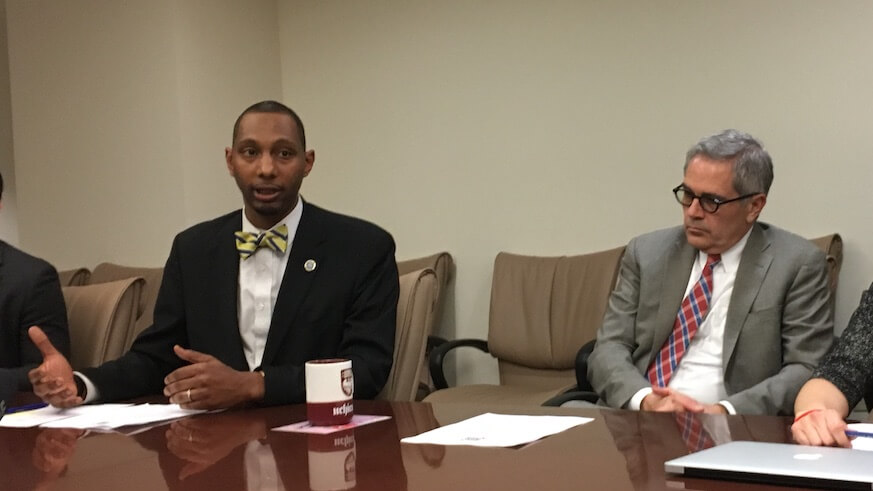For decades, the Philadelphia District Attorney’s Office hasn’t had an official policy on expungements. But in decades past, it had a higher rate of objecting to them than most other counties around Pennsylvania, at some 20 to 40 percent of requests, making criminal records harder to get rid of in Philly.
“There would be some days where the expungement list could take 10 minutes, or it could take three and a half hours,” said Mike Lee, director of legislation at the Philadelphia DA’s office. “If they objected at the court date is a different question, and that led to a lot of the backlog and frustration.”
On Wednesday, DA Larry Krasner announced his latest new policy for the office: supporting all expungement requests by citizens who were acquitted, only convicted of a summary charge, or who completed a diversionary program. The policy also asks ADAs to positively seek expungement if they feel a defendant was wrongly accused. He said this would “expedite” the process for citizens already eligible for expungement but who previously would have had to show up in court, possibly multiple times, for proceedings that Krasner’s staff described as “very random.”
“It felt more like a test that an individual ADA was doing in his head, like, ‘Are you a worthy person or are you a non-worthy person?'” Dana Bazelon, senior policy counsel at the DA’s office, said of past expungement hearings. “This is about not making those judgments, but allowing people to have a second chance.”
Krasner noted that in Pennsylvania, where court records are available online to the public, even an arrest that doesn’t end in a conviction can dog an individual through their life.
“Criminal records for people who were not convicted of a charge or a case are a permanent impediment to employment, to college admissions and other educational admissions, sometimes even to loans,” Krasner said. “The last thing we want to do is drive people back toward crime.”
City officials estimate that one in three Philadelphians has some sort of criminal record, whether that’s a conviction or an arrest.
Lee himself helped found Philadelphia Lawyers for Social Equity, a group whose work in part included expungement clinics to help citizens apply to seal their records. He estimated that roughly 8,000 expungement applications are filed yearly in Philadelphia. It’s unclear how many of those cases would fall under Krasner’s new policy. But common cases that were being sought for expungement included arrests for disorderly conduct, open container, loitering or obstructing the highway, Lee said.
The one exception in Krasner’s policy for automatic expungement is for sex assaults and domestic-violence related crimes, in which non-conviction doesn’t warrant immediate support for expungement due to concerns that those types of charges are often dismissed when victims are afraid to testify.
Read the full text of the new policy below.
Krasner’s latest change @philadao: an expungement policy where none existed before that guarantees support to some applicants. https://t.co/PXeXY7apEU pic.twitter.com/7CyxKqvI35
— Sam Newhouse (@news_haus) May 3, 2018
Expungements can be applied for through bar associations, local nonprofits or at the Philadelphia courts. The Philadelphia Bar Association has information online about the process at getexpunged.org.




























